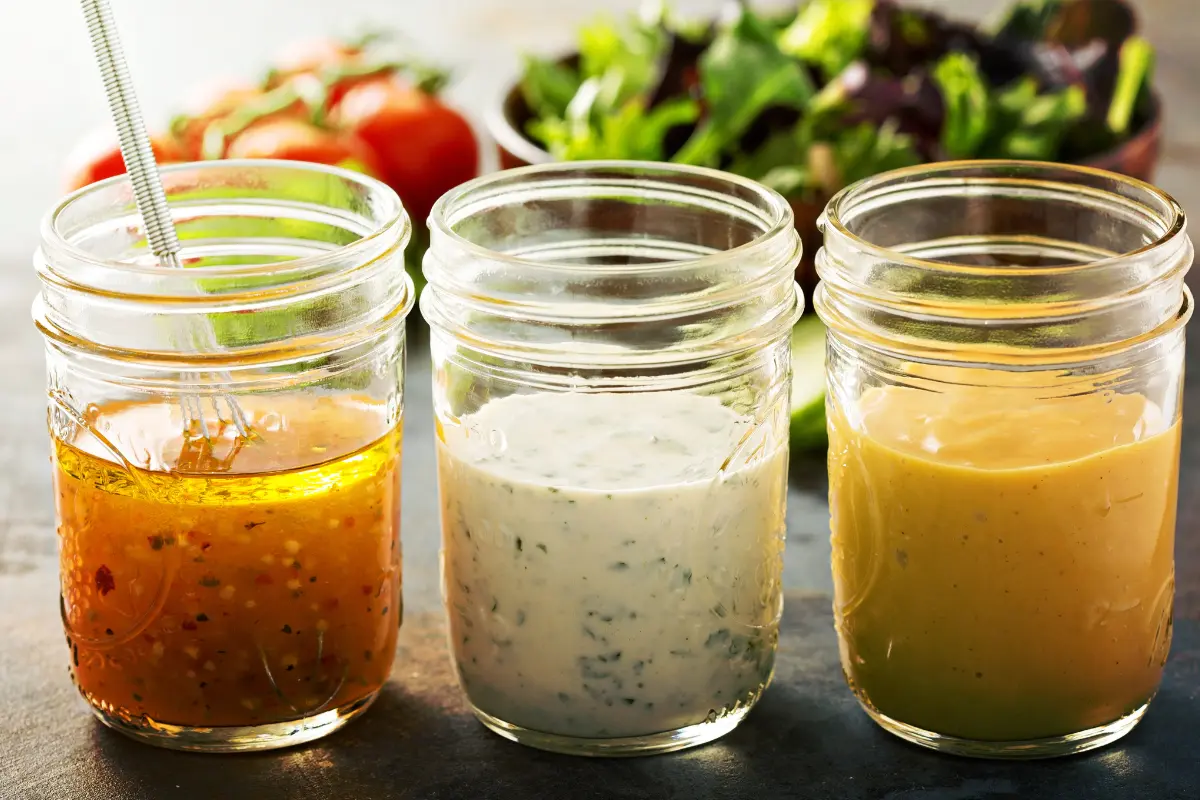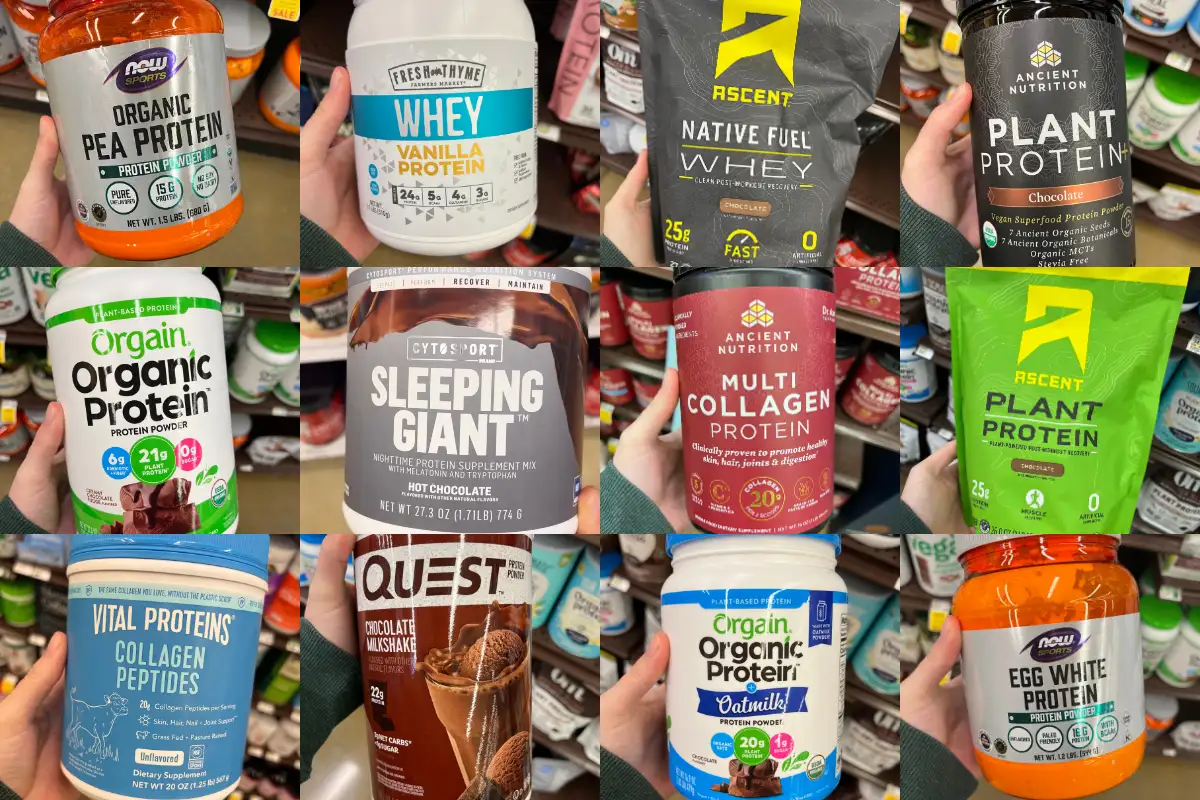
Shopping for a new protein powder and wondering, “Which protein powder is best for me?”
With all the protein powder options and brands out there, determining how protein powders differ from one another and the different ingredients to look out for can be confusing.
Today we'll cover the most popular types of protein power and how to decide if and when it makes sense to add this popular supplement to your routine.
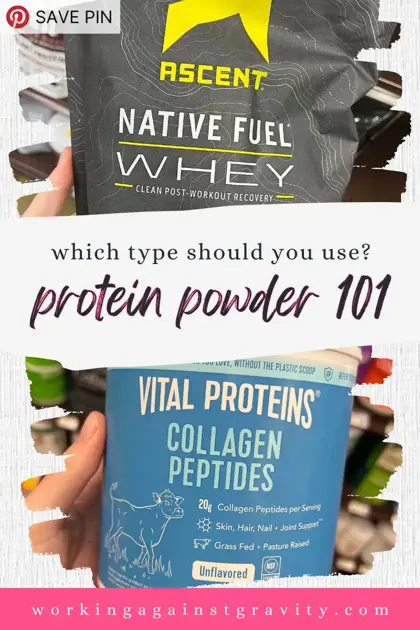
Why is Protein Important?
Protein helps with muscle growth and maintenance. It also affects hormone production, enzyme creation, blood sugar stabilization, and more. Protein is primarily found in dairy products, seafood, eggs, animal meats, and these vegan and vegetarian sources.
Advertisement
Curious about how much protein you need? Learn how to calculate your macros for free or get a dietitian-written meal plan with a personalized protein target.
What are Amino Acids?
Amino acids are the building blocks of protein. There are 20 different amino acids, nine of which are “essential,” and eleven of which are “non-essential” or “conditionally essential.”
Essential Amino Acids
The essential amino acids are histidine, isoleucine, leucine, lysine, methionine, phenylalanine, threonine, tryptophan, and valine.
Your body can’t make these amino acids, so they need to be obtained through your diet. A protein source is considered “complete” when it contains all nine essential amino acids. Complete protein sources include:
Advertisement
- Fish
- Beef
- Poultry
- Eggs
- Dairy
- Soy products like tofu and tempeh
Non-Essential Amino Acids and Conditionally Essential Amino Acids
The remaining eleven amino acids are “non-essential” or “conditionally essential” and include alanine, arginine, asparagine, aspartic acid, cysteine, glutamic acid, glutamine, glycine, proline, serine, and tyrosine.
Your body can make non-essential amino acids no matter what you eat. Conditionally essential amino acids are required through diet during times of illness or stress. The conditionally essential amino acids are arginine, cysteine, glutamine, tyrosine, glycine, proline, and serine.
Incomplete protein sources include (but are not limited to):
- Nuts and seeds
- Legumes
- Whole grains
- Vegetables
Eating a variety of complementary incomplete protein sources throughout your day can help you get all of the essential amino acids needed for optimal health.
Learn more about protein and protein pairing for vegans and vegetarians in Episode 5 of WAG’s Lunch and Learn YouTube series.
Advertisement
Important Amino Acids for Athletes
Leucine, isoleucine, and valine (all essential amino acids) are especially important for athletes as they are particularly important for muscle protein synthesis—the process in which your body builds and repairs muscle [1].
Types of Protein Powder
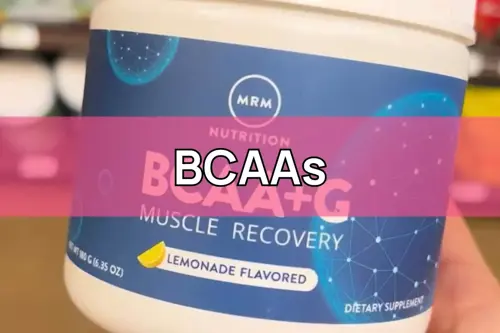
Branched-Chain Amino Acids (BCAAs)
“Branched chain” refers to the chemical structure of three essential amino acids: leucine, isoleucine, and valine. BCAAs are quickly absorbed and are used directly in your muscles for energy instead of going to your liver first [1]. This makes them a popular supplement to promote muscle strength, growth, and recovery before, during, and after training sessions.
Advertisement
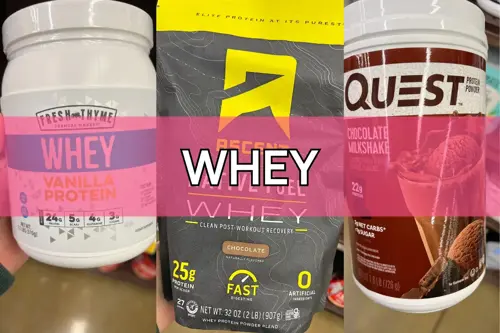
Whey Protein
Your body breaks down this milk-based protein derivative quickly, which may improve performance and recovery. High-quality whey protein powders often contain all nine essential amino acids (including the three BCAAs). Whey protein is best used before and after workouts to fuel your muscles quickly [2].
Whey is your best bet when using protein in baking (we love Ascent’s Lemon Sorbet flavor) or when mixing with yogurt or overnight oats to give them a protein punch.
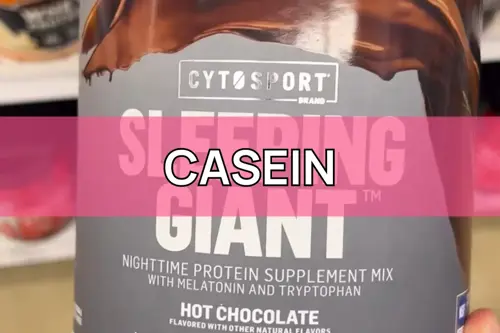
Advertisement
Casein Powder
Casein is another milk-based protein powder that is absorbed more slowly due to the gel-like substance created when it interacts with stomach acid [1]. This means it is great to consume before a long period of “fasting” or before bed. Due to its slower digestion rate, casein has been shown to improve protein balance over longer periods, improving overall recovery and strength gains [3].
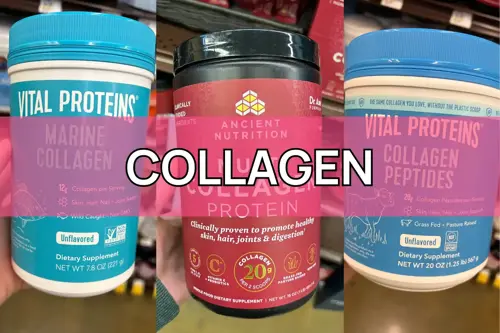
Collagen Peptides and Powders
Collagen makes up about 25–35% of the protein in your body [1]. It is the building block of bone, skin, muscle, tendons, and ligaments. Thus, it is most commonly used to support joint health, decrease inflammation, and improve the health of hair, skin, and nails [8,9]. Collagen has also been shown to improve gut health [10].
Add collagen to overnight oats, smoothies, or warm drinks for a protein boost.
Advertisement
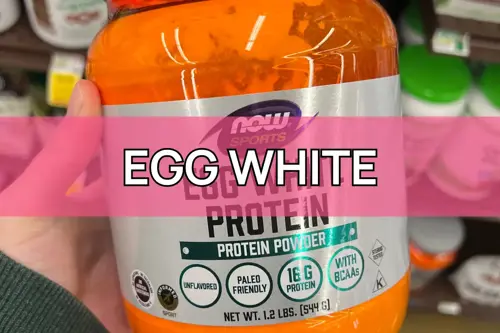
Egg White Protein
If you’re lactose intolerant or want to try a dairy-free supplement, egg white protein is a great option. Like all animal products, eggs are a complete protein, which means they supply your body with the essential amino acids it needs to support optimal muscle health [4].
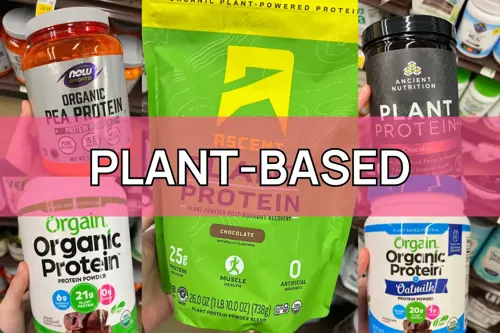
Advertisement
Plant-Based Protein Powder
Pea protein, hemp protein, rice protein, and mixed-plant proteins are all acceptable protein powder options for vegans, vegetarians, or those who prefer to limit animal protein consumption.
Pea protein is rich in BCAAs, but studies show that, in general, plant proteins are more slowly absorbed than whey protein supplements [5]. Plus, plant-based proteins may not contain all nine essential amino acids, depending on the brand [1]. To ensure you’re getting the most out of your protein powder, try pairing consumption with digestive enzymes, which studies show may help with the breakdown, absorption, and utilization of plant-based protein [6].
Which Protein Powder Should You Pick?
Amino acid makeup is one of the key factors when determining the quality of your protein powder. Other considerations include potential additives, fillers, and flavoring. Try to avoid protein powder brands with artificial flavors or fillers. From there, choose based on your dietary preferences.
No matter which type of protein powder you decide is best for you, it’s important to remember that supplements are just that: supplements! They are meant to supplement your diet if you’re already opting for whole, healthy protein sources and still need a bit of extra help reaching your total protein goals.
Advertisement
Wondering if getting more protein in your diet will help you reach your goals? A 1-on-1 nutrition coach will help you determine how much protein you need and if supplementation would be beneficial.
References:
- Fink, H. H., & Mikesky, A. E. (2018). Practical applications in sports nutrition (5th ed.). Burlington, MA: Jones & Bartlett Learning.
- Tipton, K. D., Elliott, T. A., Cree, M. G., Wolf, S. E., Sandford, A. P., & Wolfe, R. R. (2004). Ingestion of casein and whey proteins result in muscle anabolism after resistance exercise. Med Sci Sports Exerc, 36(12), 2073-81. Retrieved from https://www.ncbi.nlm.nih.gov/pubmed/15570142
- Phillips, S. M., Tang, J. E., & Moore, D. R. (2009). The role of milk- and soy-based protein in support of muscle protein synthesis and muscle protein accretion in young and elderly persons. J Am Coll Nutr, 28(4), 343-54. Retrieved from https://www.ncbi.nlm.nih.gov/pubmed/20368372
- Layman, D. K., & Rodriguez, N. (2009). Egg protein as a source of power, strength, and energy. Nutrition Today, 44(1), 43-48. DOI: 10.1097/NT.0b013e3181959cb2
- Overduin, J., Guerin-Deremaux, L., Wils, D., & Lambers, T. T. (2015). NUTRALYS pea protein: Characterization of in vitro gastric digestion and in vivo gastrointestinal peptide responses relevant to satiety. Food Nutr Res, 59. doi: 10.3402/fnr.v59.25622
- Minevich, J., Olson, M. A., Mannion, J. P., Boublik, J. H., McPherson, J. O., Lowery, R. P., Shields, K…& Jager, R. (2015). Digestive enzymes reduce quality differences between plant and animal proteins: a double-blind study. J Int Soc Sports Nutr, 12(Suppl 1), 26. doi: 10.1186/1550-2783-12-S1-P26
- Crik Nutrition. (2019). Why cricket protein? Crik Nutrition. Retrieved from https://criknutrition.com/pages/why-cricket-protein-powder
- Crowley, D. C., Lau, F. C., Sharma, P., Evans, M., Guthrie, N., Bagchi, M., Bagchi, D…& Raychaudhuri, S. P. (2009). Safety and efficacy of undenatured type II collagen in the treatment of osteoarthritis of the knee: a clinical trial. Int J Med Sci, 6(6), 312-321. Retrieved from https://www.ncbi.nlm.nih.gov/pmc/articles/PMC2764342/
- Proksch, E., Segger, D., Degwert, J., Schunck, M., Zague, V., & Oesser, S. (2014). Oral supplementation of specific collagen peptides has beneficial effects on human skin psychology: A double-blind, placebo-controlled study. Spin Pharmacol Physiol, 27, 47-55. https://doi.org/10.1159/000351376
- Koutroubakis, I. E., Petinaki, E., Dimoulios, P., Vardas, E., Roussomoustakaki, M., Maniatis, A. N., & Kourtoumalis, E. A. (2003). Serum laminin and collagen IV in inflammatory bowel disease. J Clin Pathol, 56(11), 817-20. Retrieved from https://www.ncbi.nlm.nih.gov/pubmed/14600124
Get a WAG Coach
Working Against Gravity has led the macro tracking and health space for over a decade. Our team doesn’t just understand the science of nutrition—we’ve spent years mastering the art of tailoring it to fit your life. That means no cookie-cutter plans, just real strategies that have worked for over 30,000 people.
Choose from our membership options and start working with an expert 1-on-1 coach today.


